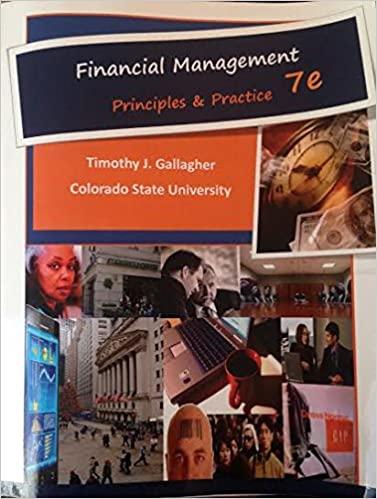Answered step by step
Verified Expert Solution
Question
1 Approved Answer
scenario and question Axon is an early-stage biotech research company with a single product, AX484, in its pipeline. Recently, Axon successfully received IND status for


scenario and question
Axon is an early-stage biotech research company with a single product, AX484, in its pipeline. Recently, Axon successfully received IND status for AX484, and has been preparing to test the new compound in phase 1 clinical trials. Axon has neither the capital nor the clinical trial expertise to navigate AX484 through the regulatory approval process, and is looking for a partner to help fund the costs of the trial and serve in an advisory role. Earlier this year, the general partners of BioLab Ventures (BLV) met with the management team of Axon to negotiate the terms of a series A round of financing (Axon had initially been financed by the founders, and was currently renting space in a shared laboratory facility). A number of important questions needed to be addressed including the current "pre-money" valuation of Axon, the amount of equity that would be acquired by BLV, and the amount BLV would pay to acquire that equity. Problem 5 0.0/1.0 point (graded) Using this financial model, how much of an equity interest would Axon be willing to offer for an investment of $10 million? Assume that the equity interest is calculated as a percentage of the total post-money capitalization of Axon. (Note: Your answer should be a number in percentage form. Do not enter '%'.) % Asymmetric information might be one possible explanation for the discrepency between BLV's offer and Axon's internal valuation. BLV might ask itself, facing the challenge of financing the phase 1 clinical trial, is Axon being completely transparent about AX484's potential? Axon is certain to have privileged information, and therefore BLV will offer a lower price to compensate for the asymmetric information. Moreover, as the entrepreneur, Axon might be overconfident in its prospects, overestimating AX484's probability of success and commercialization potential. Deals in biotech that include convertible equity, milestones, and royalty payments can often be structured to mitigate these issues, align incentives, and distribute financial risk. For example, the entrepreneur's shares might only vest when the new drug has successfully completed pre-specified regulatory hurdles, or has been commercialized and is generating revenues for investors. Axon is an early-stage biotech research company with a single product, AX484, in its pipeline. Recently, Axon successfully received IND status for AX484, and has been preparing to test the new compound in phase 1 clinical trials. Axon has neither the capital nor the clinical trial expertise to navigate AX484 through the regulatory approval process, and is looking for a partner to help fund the costs of the trial and serve in an advisory role. Earlier this year, the general partners of BioLab Ventures (BLV) met with the management team of Axon to negotiate the terms of a series A round of financing (Axon had initially been financed by the founders, and was currently renting space in a shared laboratory facility). A number of important questions needed to be addressed including the current "pre-money" valuation of Axon, the amount of equity that would be acquired by BLV, and the amount BLV would pay to acquire that equity. Problem 5 0.0/1.0 point (graded) Using this financial model, how much of an equity interest would Axon be willing to offer for an investment of $10 million? Assume that the equity interest is calculated as a percentage of the total post-money capitalization of Axon. (Note: Your answer should be a number in percentage form. Do not enter '%'.) % Asymmetric information might be one possible explanation for the discrepency between BLV's offer and Axon's internal valuation. BLV might ask itself, facing the challenge of financing the phase 1 clinical trial, is Axon being completely transparent about AX484's potential? Axon is certain to have privileged information, and therefore BLV will offer a lower price to compensate for the asymmetric information. Moreover, as the entrepreneur, Axon might be overconfident in its prospects, overestimating AX484's probability of success and commercialization potential. Deals in biotech that include convertible equity, milestones, and royalty payments can often be structured to mitigate these issues, align incentives, and distribute financial risk. For example, the entrepreneur's shares might only vest when the new drug has successfully completed pre-specified regulatory hurdles, or has been commercialized and is generating revenues for investorsStep by Step Solution
There are 3 Steps involved in it
Step: 1

Get Instant Access to Expert-Tailored Solutions
See step-by-step solutions with expert insights and AI powered tools for academic success
Step: 2

Step: 3

Ace Your Homework with AI
Get the answers you need in no time with our AI-driven, step-by-step assistance
Get Started


